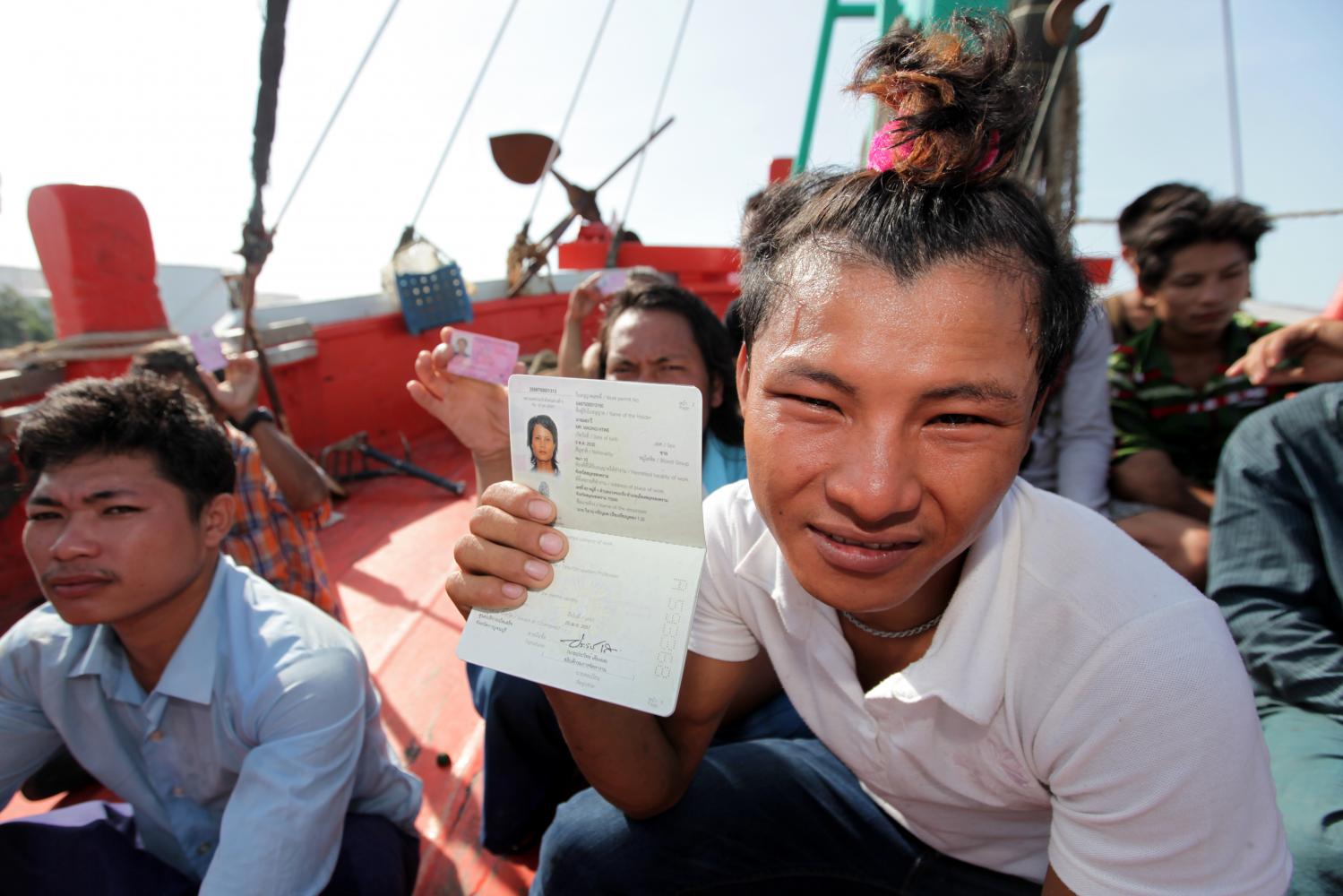
On International Workers' Day, which occurs tomorrow, the world commemorates the historic struggle for an eight-hour workday, a critical milestone in the journey towards greater social justice for workers. Here in this part of the world, the Asia-Pacific region has often been a leader in the fight for better working conditions. Indeed, New Zealand workers were among the first in the world to win the aforementioned right in 1840, when carpenter Samuel Parnell successfully negotiated with employers to agree on the principle of "eight hours for work, eight for sleep and the remaining eight for recreation".
The very first International Labour Organization (ILO) Convention, adopted in 1919, limited hours of work to "eight in the day and forty-eight in the week". These rules, however, only applied to workers in "industrial undertakings" on land. It wasn't until 1936 that the first convention to limit working hours on cargo and passenger vessels was adopted. The convention, however, pointedly excluded fishing vessels. The Maritime Labour Convention, 2006, which replaced previous conventions, refined protections for seafarers but continued to exclude fishers. It wasn't until 2007 that the Work in Fishing Convention set the minimum hours of rest for fishers.
The 88-year delay between adopting work and rest hour protections for workers on land, to cargo and passenger vessel workers at sea to, eventually, fishers, neatly illustrates the persistent decent-work deficits for fishers and the "out of sight, out of mind" attitude towards the sector. Asia-Pacific is home to 31 million of the world's 38 million fishers -- yet only Thailand has ratified the Work in Fishing Convention, 2007 (No.188). In many countries, migrant workers make up the bulk of the fishing and seafood processing sectors, including in Thailand, where commercial fishing is overwhelmingly dependent on migrant workers, who comprised more than 90% of the sector in 2018. Indonesia and the Philippines, and increasingly Vietnam, are important countries of origin for migrant fishers on board vessels flagged to other countries in the Asia Pacific and often fishing in the coastal waters of the region.
Fishing is among the most dangerous of all professions. A recent ILO report found that during Covid-19, fishing countries such as Thailand, the Philippines, Indonesia and the Republic of Korea adopted policies that enabled the continuation of fishing as it was deemed "essential" to food security and/or the economy. However, governments' pandemic relief policies often overlooked or excluded migrant workers in these jobs. At the same time, the occupational health and safety hazards for fishers were compounded as they were stranded on vessels, in close quarters, with limited supplies or personal protective equipment, and intermittent access to medical care.
Low union density among commercial fishers and the lack of collective bargaining agreements covering fishers exacerbated Covid-19 impacts. In Thailand, migrant workers can join existing trade unions but are prohibited from holding executive office or forming their own unions. For migrants working as fishers in Thailand, there are simply no existing Thai trade unions to join. Efforts to negotiate occupational safety and health agreements with fishing vessel owners have met resistance. In Indonesia, where trade union movements are more vibrant, small numbers of commercial fishers have joined the Kesatuan Pelaut Indonesia, an affiliate of the International Transport Workers' Federation, but have not yet reached collective bargaining agreements with employers.
The evidence is clear that organising is one of the most effective means to achieve decent work, including improving wages, safety and working conditions. During the pandemic, workers have relied on trade unions to strengthen job and income security as well as to provide access to social protections. But for fishers and migrant workers without trade unions, a critical avenue of representation, support, advocacy and services is missing.
But there is good news. In Thailand, migrants in the Thai fishing sector have established informal worker organisations with support from Thai and international trade unions. For example, the International Transport Workers' Federation has formed the Fishers' Rights Network among more than 3,000 migrant fishers from Cambodia and Myanmar. To organise migrant seafood processing workers, the State Enterprises Workers' Relations Confederation supported the establishment of the Southern Seafood Industry Workers Group. In Myanmar, trade unions and civil society organisations have provided critical Covid-response services to migrant workers and continued to operate Migrant Worker Resource Centres. Through the EU-supported Ship to Shore Rights South East Asia and other labour migration projects, ILO supports these and other initiatives that build workers' organisations and provide services for fishers and migrant workers.
On International Workers' Day, we call on governments, employers, workers and civil society organisations to reaffirm their commitment to decent work for fishers and migrant workers. All stakeholders should commit to a human-centred recovery from the Covid-19 crisis that is inclusive, sustainable and resilient. Most urgently for fishers and migrant workers in Asia-Pacific, serious gaps in protections for workers need to be addressed, including on issues such as employment contracts, adequate wages, and stronger occupational safety and health measures. We all benefited from the essential services fishers provided during the pandemic. We must work together towards policies that prioritise the creation of decent work and address inequalities so that fundamental workers' rights are respected, whether on land or at sea.
Mi Zhou and Benjamin Harkins are Chief Technical Advisor and Technical Officer respectively on the International Labour Organization's Ship to Shore South East Asia Programme funded by the European Union. The views expressed here are those of the authors. They do not necessarily reflect the opinions or views of the ILO or the EU.







